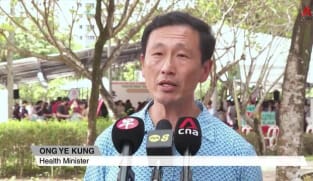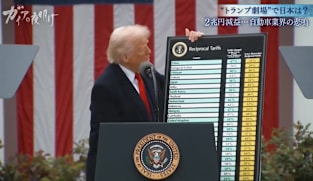Janil Puthucheary on safeguards for cord blood banking
The Ministry of Health (MOH) has scheduled inspections every two years for cord blood banks to assess their compliance with regulatory requirements under the Healthcare Services Act. It may conduct additional visits if there are specific areas of concern or suspected lapses. Arising from the Cordlife incident, MOH will review the regulatory requirements, including inspections, monitoring and reporting. Senior Minister of State for Health Janil Puthucheary said this in reply to an MP's questions in Parliament on Wednesday (Jan 10). He cautioned against adding inappropriate costs and regulatory compliance burden. “We need to take a risk-based approach,” he said. Dr Janil pointed out that many clients of Cordlife have approached MOH for assistance. Most of them wanted Cordlife to rectify the shortcomings and this will be MOH’s “supervision priority” as investigations are being conducted. MOH has also received enquiries about transferring cord blood units to another provider. He said MOH has engaged the other storage providers and they are prepared to assist. MOH has advised clients to wait for the investigation to be completed, likely in a few weeks’, before deciding on whether to do so. “Transferring cord blood units at ultra-low temperatures is a complex task and carries risks that are not insignificant,” he said.
The Ministry of Health (MOH) has scheduled inspections every two years for cord blood banks to assess their compliance with regulatory requirements under the Healthcare Services Act. It may conduct additional visits if there are specific areas of concern or suspected lapses. Arising from the Cordlife incident, MOH will review the regulatory requirements, including inspections, monitoring and reporting. Senior Minister of State for Health Janil Puthucheary said this in reply to an MP's questions in Parliament on Wednesday (Jan 10). He cautioned against adding inappropriate costs and regulatory compliance burden. “We need to take a risk-based approach,” he said. Dr Janil pointed out that many clients of Cordlife have approached MOH for assistance. Most of them wanted Cordlife to rectify the shortcomings and this will be MOH’s “supervision priority” as investigations are being conducted. MOH has also received enquiries about transferring cord blood units to another provider. He said MOH has engaged the other storage providers and they are prepared to assist. MOH has advised clients to wait for the investigation to be completed, likely in a few weeks’, before deciding on whether to do so. “Transferring cord blood units at ultra-low temperatures is a complex task and carries risks that are not insignificant,” he said.



















